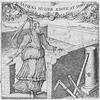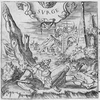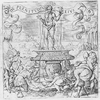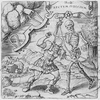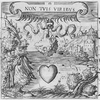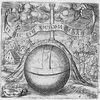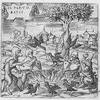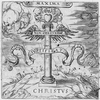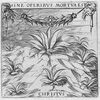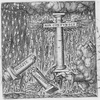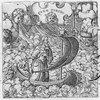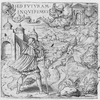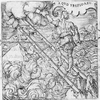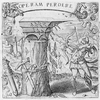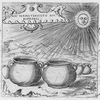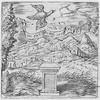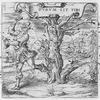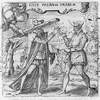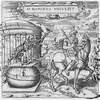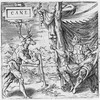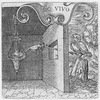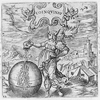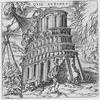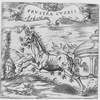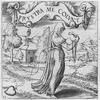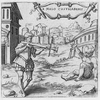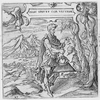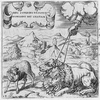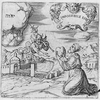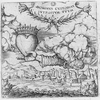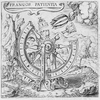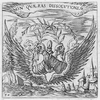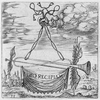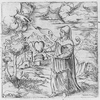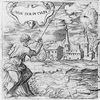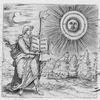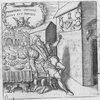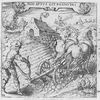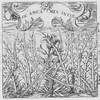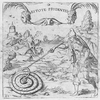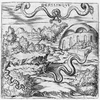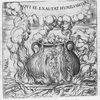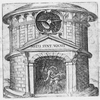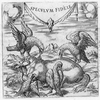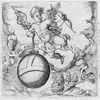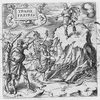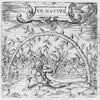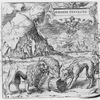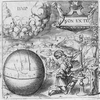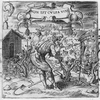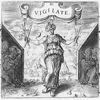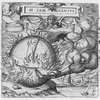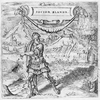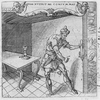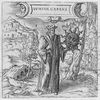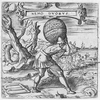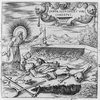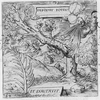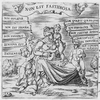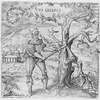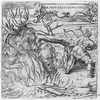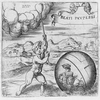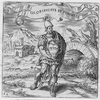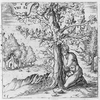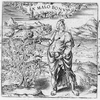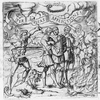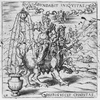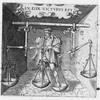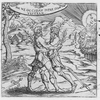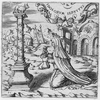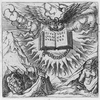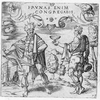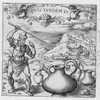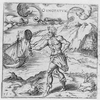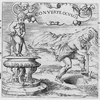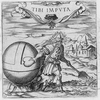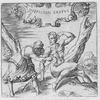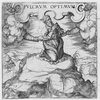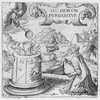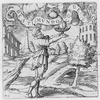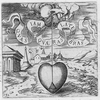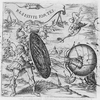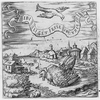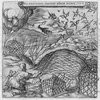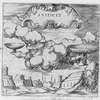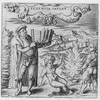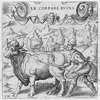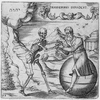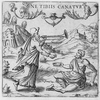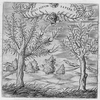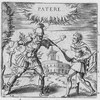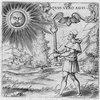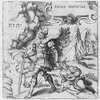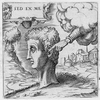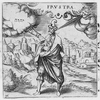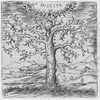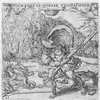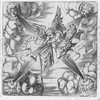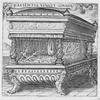Invia virtuti nulla est via [60]
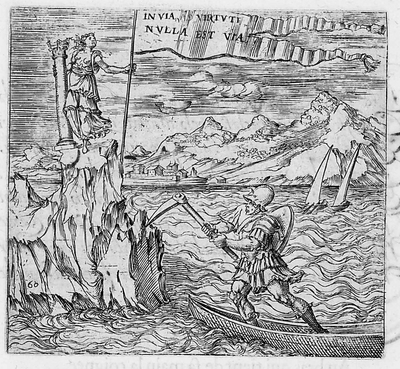
De ijverighe Lust ontsiet geen dinck (hoe swaer)
Om comen bij het geen daer bij men garen waer.
Dees Man doet alle vlijt om by de Deucht te Raken
De herde Rots hij Slecht om effen wech te maken.
De Deucht, wijst hem nae Godt: en maeckt sijn lust soo groot
Dat hij om daer te sijn, en vreest haet, smaet, noch doot.
T'Geloof dat maeckt hem sterck, om welgemoet te varen
De sorchelijcke zee van werelts woeste baren.
Om comen bij het geen daer bij men garen waer.
Dees Man doet alle vlijt om by de Deucht te Raken
De herde Rots hij Slecht om effen wech te maken.
De Deucht, wijst hem nae Godt: en maeckt sijn lust soo groot
Dat hij om daer te sijn, en vreest haet, smaet, noch doot.
T'Geloof dat maeckt hem sterck, om welgemoet te varen
De sorchelijcke zee van werelts woeste baren.

Cest homme icy, selon qu'il s'achemine,
Monstre qu'il veut à vertu paruenir,
Marchant en mer, la roche brise & mine
Pour son chemin applanir & vnir.
Celuy qui veut iusques à Christ venir,
Doit tout ainsi par actes vertueux
S'acheminer, & de foy se munir,
Pour rendre aisé ce roc tant perilleux.
Monstre qu'il veut à vertu paruenir,
Marchant en mer, la roche brise & mine
Pour son chemin applanir & vnir.
Celuy qui veut iusques à Christ venir,
Doit tout ainsi par actes vertueux
S'acheminer, & de foy se munir,
Pour rendre aisé ce roc tant perilleux.

Translations
 |
...
|
 |
...
|
 |
No way is closed to virtue.
|
Literature
-
Mentioned in: Henkel and Schöne, Emblemata
 , col. 1550f
, col. 1550f
Sources and parallels
-
Man in boat drawned by a rock, now a metaphor for the beloved and for God:Dum trahimus, trahimur. [20] (in: Jacob Cats, Sinne- en minnebeelden (1627))
[Compare
![Compare [compare]](/static/images/compare2.gif) ]
]
-
Slightly different motto in: Invia amanti nulla est via [48] (in: Otto Vaenius, Amoris divini emblemata (1615))
[Compare
![Compare [compare]](/static/images/compare2.gif) ]
]
References, across this site, to this page:
- Dum trahimus, trahimur. [20] (in: Jacob Cats, Sinne- en minnebeelden (1627))
- Invia amanti nulla est via [48] (in: Otto Vaenius, Amoris divini emblemata (1615))
Iconclass
A man, dressed like a Roman soldier, demolishes a rock upon which a personification of Virtue is standing, holding a column and a banner- rocky coast
[25H131]

- lake
[25H214]

- village
[25I2]

- hitting at something
[31A2743]

- looking upwards
[31B6211]

- looking upwards (+ indicating, pointing at)
[31B6211(+931)]

- gear for legs and feet (+ men's clothes)
[41D233(+81)]

- banner, standard (as symbol of the state, etc.) (+ variant)
[44A31(+0)]

- the soldier; the soldier's life
[45B]

- protective weapons: shield
[45C19(SHIELD)]

- armour
[45C22]

- helmet
[45C221]

- rowing-boat, canoe, etc.
[46C232]

- sailing-ship, sailing-boat
[46C24]

- tools, aids, implements ~ crafts and industries: pickaxe
[47D8(PICKAXE)]

- column, pillar ~ architecture
[48C161]

- inscription
[49L8]

- Perseverance, Resolution, Determination; 'Perseveranza' (Ripa) (+ emblematical representation of concept)
[53A2(+4)]

- Fearlessness, Intrepidity; 'Intrepidité & Costanza' (Ripa) (+ emblematical representation of concept)
[54A81(+4)]

- Virtuousness; 'Amor di Virtù', 'Attione virtuosa', 'Guida sicura de' veri honori', 'Virtù', 'Virtù insuperabile' (Ripa) (+
partially clothed)
[57A6(+112)]

- proverbs, sayings, etc. (with TEXT)
[86(IN VIA VIRTUTI NULLA EST VIA)]

![[H O M E : Emblem Project Utrecht]](/static/images/rd-small.gif)





